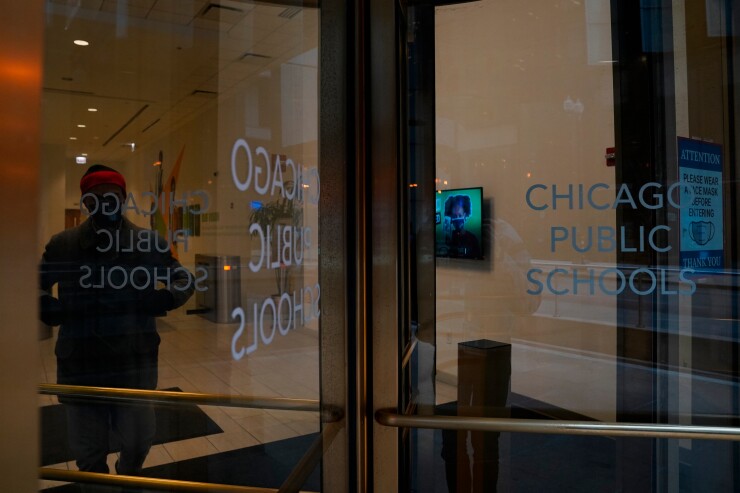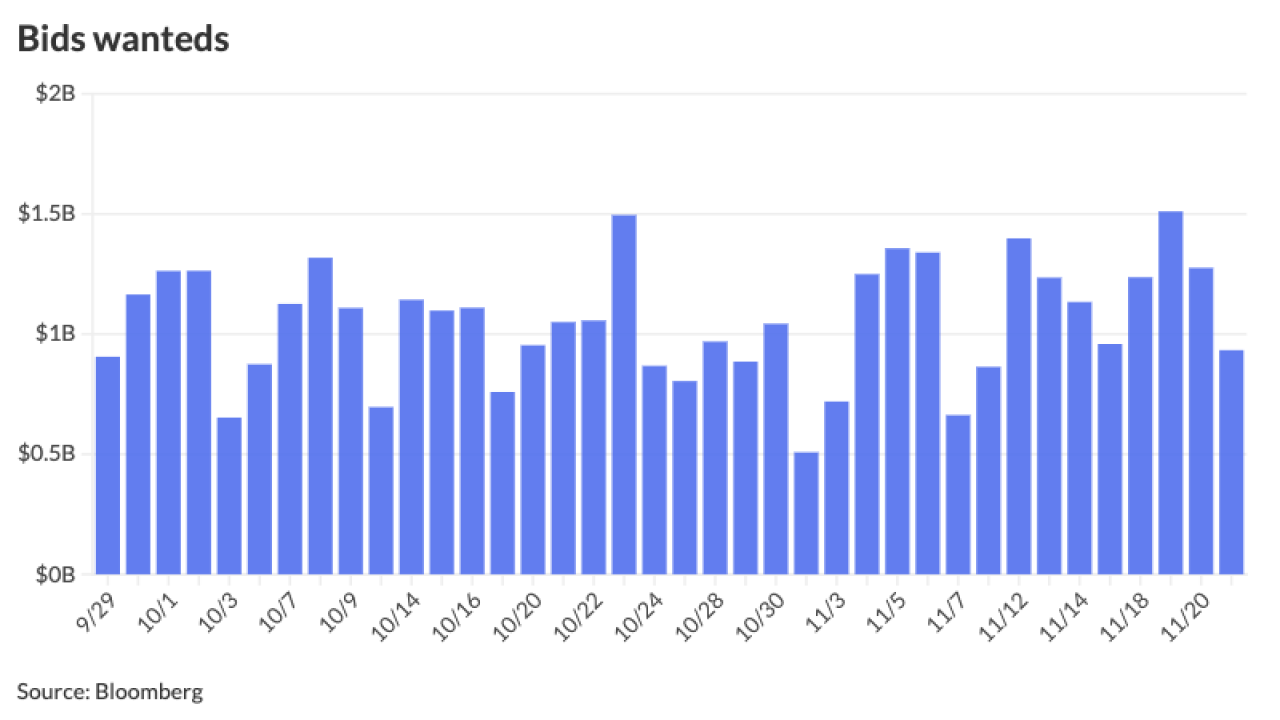
Having failed to make changes demanded by the Trump administration before this week's deadline, Chicago Public Schools lost access to $8 million in fiscal year 2026 grant funding.
The Magnet School Assistance Program grant has paid for CPS to shift classrooms to Science, Technology, Engineering, Arts and Mathematics (STEAM) instructional models. It has also supported technology integration, personalized learning approaches, new staff positions, after-school programming and field trips.
The $8 million is a relatively small amount compared to the Chicago Board of Education's
The halted funds for Chicago are part of $65 million in total funding stopped by the federal government over diversity, equity and inclusion policies. New York City and Fairfax, Virginia, schools are also affected,
CPS argued in a Sept. 19 response to Craig Trainor, Department of Education acting assistant secretary for civil rights, that DOE failed to support its argument with specific evidence and the grant termination "will directly harm CPS students," impacting thousands of schoolkids and staff.
In a Sept. 16 letter shared with The Bond Buyer, Trainor claimed CPS programming to improve Black students' educational outcomes and its policies around transgender students are discriminatory.
Trainor said he would not certify the district's MSAP grant — both because he believes the district's policies go against Students for Fair Admissions v. Harvard and because the grant "is no longer in the best interest of the federal government."
Elizabeth Barton, the district's acting general counsel, noted in response, "CPS is statutorily mandated to correct academic and opportunity gaps for Black students" under state law. State law similarly bans discrimination based on a person's actual or perceived sex, she said, and "protects all students' rights to participate in school athletics consistent with their gender identity."
"Your arguments are unpersuasive," Trainor wrote in a terse Sept. 20 reply. He denied a request for an extension and refused to provide a detailed justification for the cutoff, giving CPS until 5 p.m. on Tuesday, Sept. 23 to implement remedial measures or lose its funding.
Barton replied before the deadline, protesting, "You place CPS in an impossible position where we are forced to defend ourselves without the factual and legal basis that only you can provide."
There is both an economic and a cultural dimension to the Trump administration's decision, University of Illinois-Chicago Professor of Educational Policy Studies Kenneth Saltman said.
"Urban schools that have been historically subject to disinvestment as a consequence of school funding being tied to property tax are easier targets than the suburban districts," he said by email. "There is also a cultural aspect that is about erasing the history of historically oppressed groups and promoting a white nationalist curriculum."
The district has an open request under the Freedom of Information Act for materials pertaining to the department's investigations and findings on this matter, including Trainor's emails about CPS. But CPS did not take the remedial measures Trainor was demanding.
The CPS budget office will now review each line item and identify which programming makes financial sense to continue, a district source said.
"Educational programming for urban Black students in predominantly Black schools makes sense, in that it makes learning and curriculum contextually based and meaningful by relating knowledge to students' experiences," Saltman said. "There is a great deal of educational research that supports such an approach as not just motivating to students and beneficial in terms of academic achievement but also positions knowledge as a means of social understanding and social agency."
Saltman added that levels of investment are closely tied to academic achievement, and this cut, while a fraction of the CPS budget, will harm Chicago schoolkids in a variety of ways.
The Department of Education did not respond to a request for comment by press time.
The Chicago Board of Education is rated BB-plus with a stable outlook by Fitch Ratings. KBRA assigns a BBB rating (except the 2016 to 2019 GO bonds, which it rates BBB-plus); the outlook is negative.
Moody's Ratings rates the district Ba1 with a positive outlook. S&P Global Ratings assigns a BB-plus rating; the outlook is stable.





